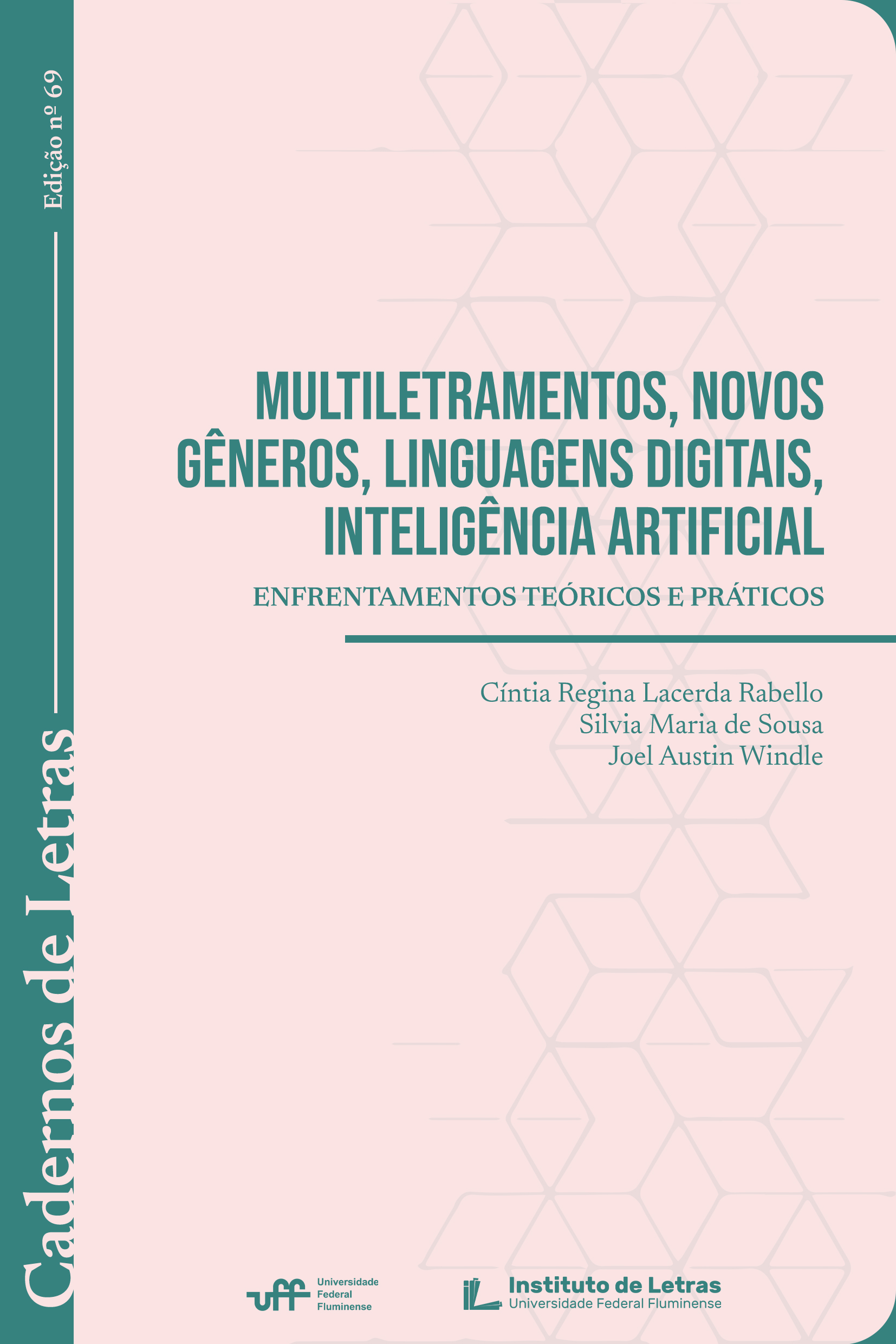Letramento na Era da Inteligência Artificial
DOI:
https://doi.org/10.22409/cadletrasuff.v35i69.63346Palavras-chave:
Inteligência artificial, IA Generativa, Letramento, Ensino e aprendizagemResumo
A mais recente iteração da Inteligência Artificial, conhecida como "IA Generativa", constitui, sobretudo, uma tecnologia voltada para o processo de escrita. A IA Generativa é uma máquina capaz de produzir textos de gêneros diversos. No contexto histórico global, a importância dessa tecnologia não pode ser subestimada, uma vez que a linguagem artificial do código se entrelaça com a linguagem natural da vida cotidiana. A capacidade de escrita da IA generativa é multimodal, indo além da produção de texto predominantemente verbal ao também "ler" e "escrever" imagens por meio de rótulos textuais e prompts. Além disso, essa forma peculiar de escrita abarca conceitos matemáticos, procedimentos de software e algoritmos. Com base nessas considerações, este artigo investiga as implicações da IA Generativa no ensino e aprendizado da alfabetização e do letramento. Inicialmente, exploramos os desafios e impactos da IA Generativa nas práticas de letramento. Em seguida, apresentamos um estudo de caso que exemplifica a implementação prática da IA Generativa no suporte ao letramento e à aprendizagem. Por fim, delineamos implicações amplas para o ensino e a aprendizagem, propondo uma nova agenda para o letramento na era da IA Generativa.
Palavras-chave: Inteligência Artificial; IA Generativa; Letramento; Ensino e aprendizagem
Downloads
Downloads
Publicado
Edição
Seção
Licença
Copyright (c) 2024 Cadernos de Letras da UFF

Este trabalho está licenciado sob uma licença Creative Commons Attribution-NonCommercial 4.0 International License.
Autores que publicam em Cadernos de Letras concordam com os seguintes termos:
Os autores mantêm os direitos e cedem à revista o direito à primeira publicação, simultaneamente submetido a uma licença Creative Commons CC-BY-NC 4.0, que permite o compartilhamento por terceiros com a devida menção ao autor e à primeira publicação pela Cadernos de Letras.
Os autores podem entrar em acordos contratuais adicionais e separados para a distribuição não exclusiva da versão publicada da obra (por exemplo, postá-la em um repositório institucional ou publicá-la em um livro), com o reconhecimento de sua publicação inicial na Cadernos de Letras.






